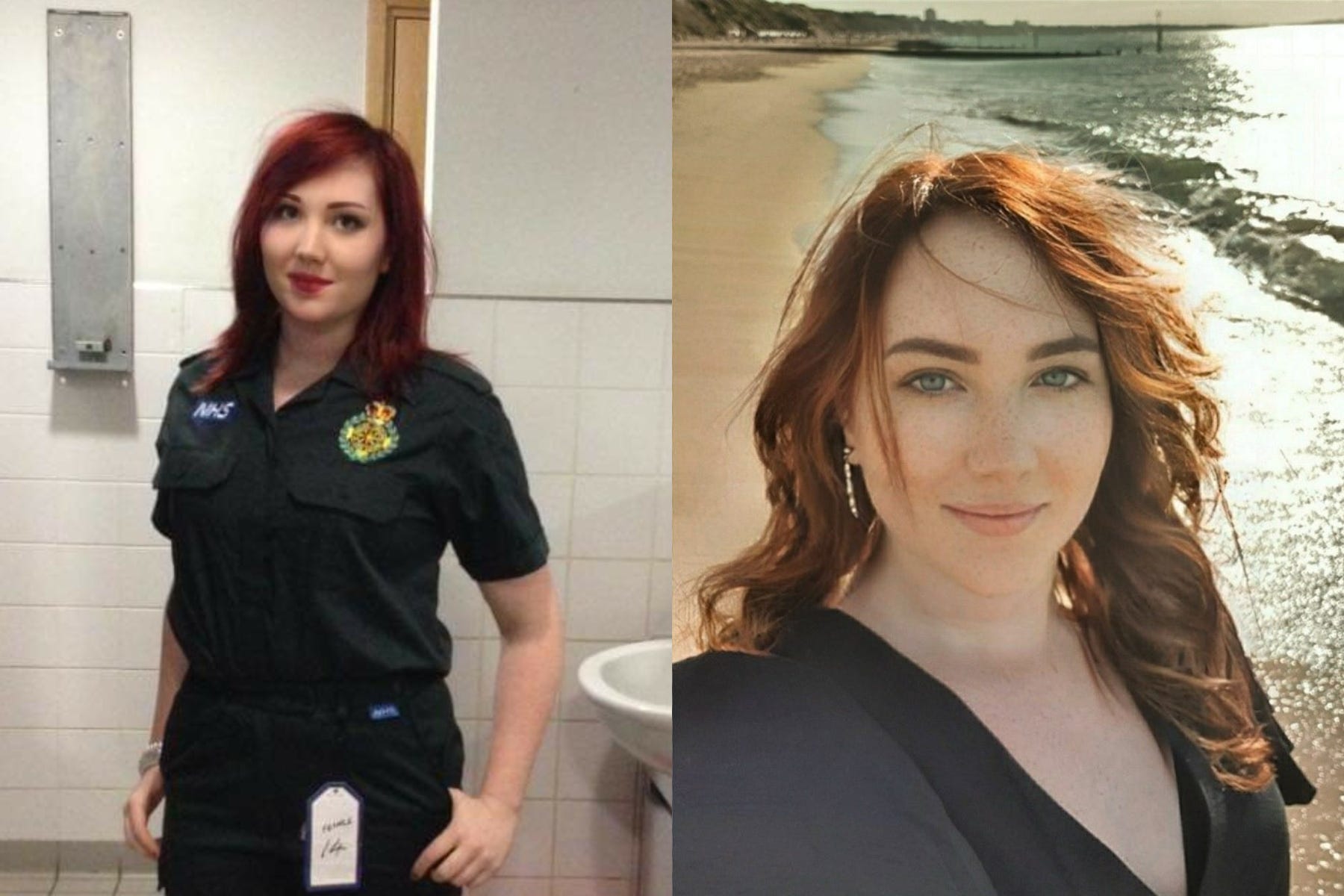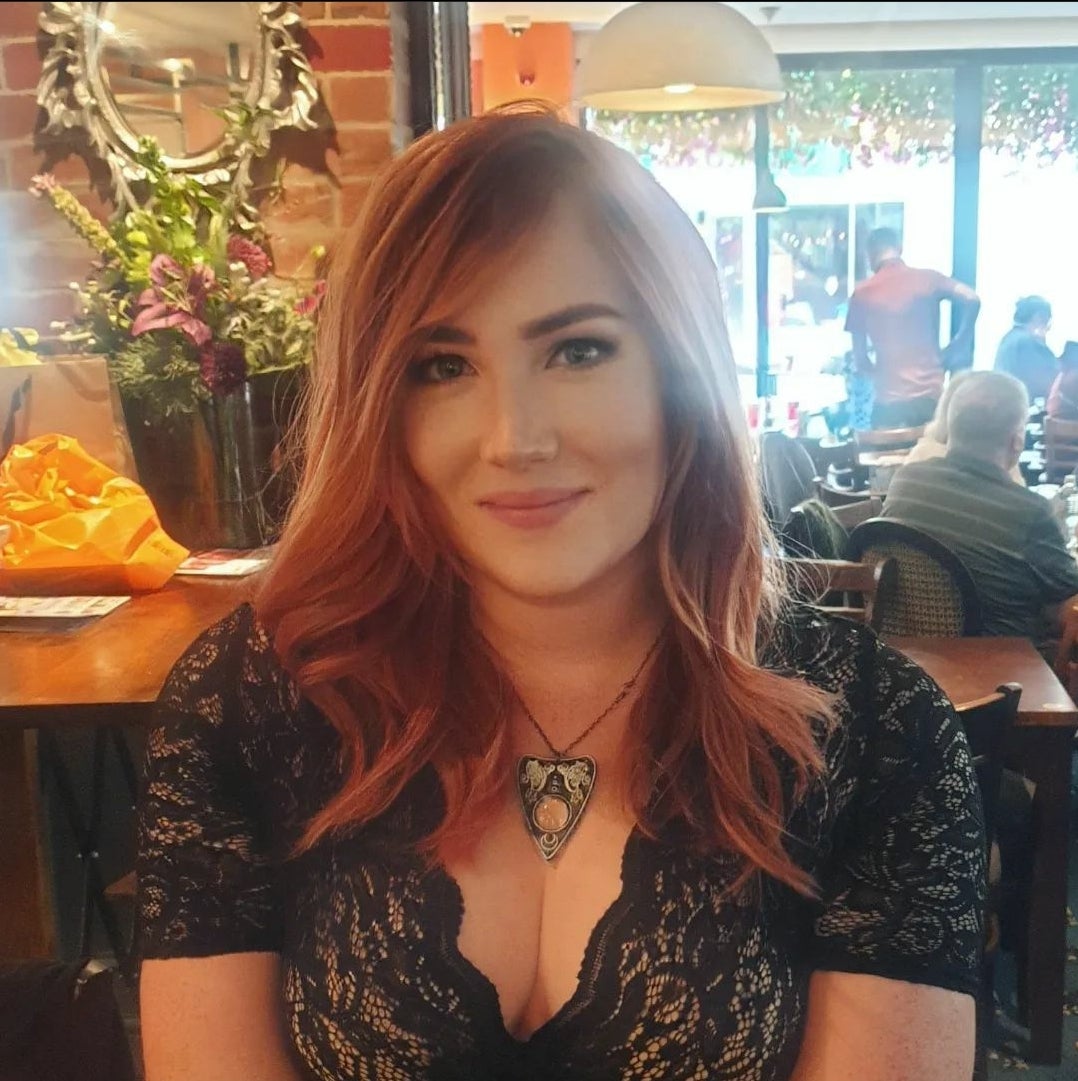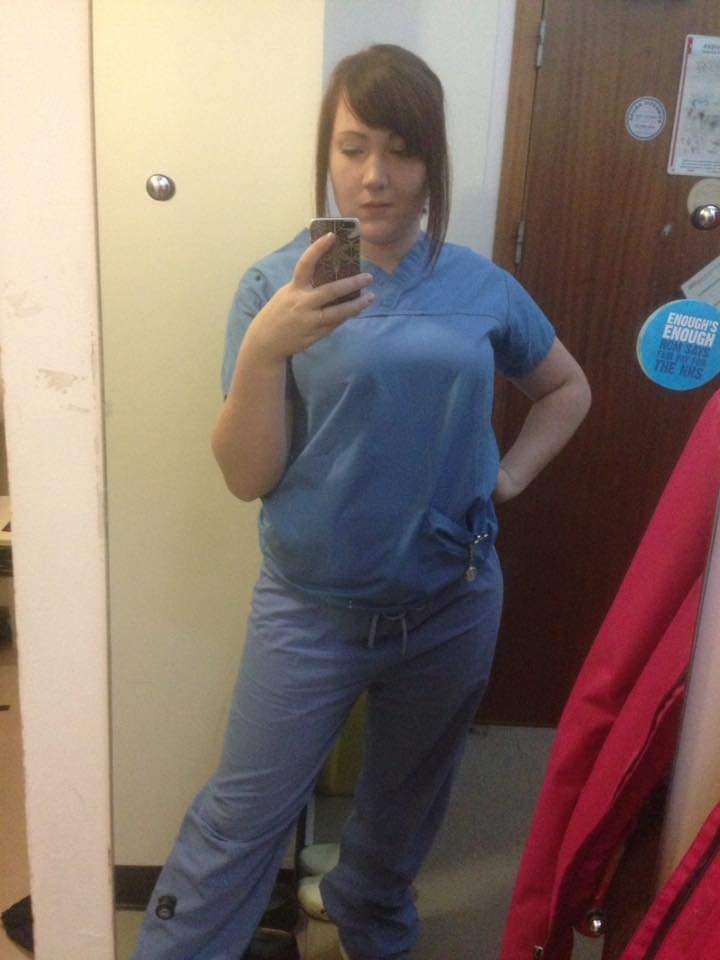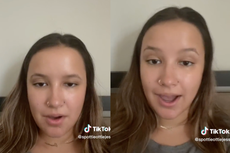‘I had a seizure and lost everything’: Woman’s dream career ended aged 21
Ellie Adams, 28, who now works as a senior paralegal, was diagnosed with epilepsy while studying paramedic science at the University of East Anglia

A woman whose lifelong dream of becoming a paramedic was shattered by a shock epilepsy diagnosis aged 21 when she “had a seizure and lost everything” has since found a “new norm” with a career in law and wishes to give the message that there is “hope, no matter what you’ve lost”.
Ellie Adams, 28, who now works as a senior paralegal, said she had dreamed of becoming a paramedic “as early as (she) can remember” and felt it was what she was born to do.
She said she did everything possible to achieve that goal, including choosing the relevant subjects for her GCSEs and A-levels, and completing voluntary work, and she was later accepted to study paramedic science at the University of East Anglia (UEA) in Norwich.
The Oxford resident “couldn’t wait” to go to university and, once she had started studying, she said the course was “everything and more” – she “absolutely loved it”.
However, during her second year of university in 2015, Ellie was involved in a crash where her car “pinballed around” the road due to adverse weather conditions, and just two months later she experienced her first epileptic seizure, which happened “out of the blue”.
Ellie did not suffer any long-term injuries as a result of the crash and doctors could not pinpoint the exact cause of the seizure, but after her second seizure she was diagnosed with epilepsy – and this led to her losing her driving licence for one year and quitting university.
Ellie said she felt “completely hopeless” and ended up working in her local Subway branch for approximately one year while she was in this “weird limbo”, feeling “miserable”, but she has since found a new career and wants to stress the importance of holding onto hope.
“If this all happens to you, and your world comes crashing down out of the blue, just breathe, just take a minute,” Ellie said.
“I found, when it was me, it was this absolute chaos and panic … and what I didn’t give myself was time to look after myself.
“I think that’s been a problem for me, trying to accept the loss of what I wanted, but there’s definitely hope, no matter what you’ve lost.
“There’s always another door that opens – a door really far away, but there’s always one that’s open, you just have to go and find it.”

Ellie does not know what “sparked” her desire to become a paramedic, but from a young age she just knew that “she never wanted to do anything else”.
She was drawn to the prospect of being able to “help so many different people” and the diversity of the role, and so when she was accepted to study at the UEA she said she was “so excited” and felt she was on the right path to one day achieve her dream.
“I just loved it… it was everything I wanted,” Ellie said.
However, in May 2015, Ellie was involved in “an unfortunate car crash” – and just months later, she experienced her first ever epileptic seizure.
She said: “I was driving. I was on the way to a shift, actually, and it was just bad conditions on the long A road.
“I ended up veering off of the dual carriageway, bounced off a road sign into the central reservation and then back into a car, so I had been pinballed around quite a lot.
“I’d had head scans and no-one could see that there was anything wrong, and then a few months later I had my first seizure out of the blue.”
Ellie explained that there is no family history of epilepsy and “there were no warning signs” prior to her first seizure – but “from that point on, it was like (her) world had ended”.

She described the first seizure as “terrifying”. She was unconscious and she was told by her then-partner that it lasted for around three minutes.
It then took her around 30 to 45 minutes to “come back around afterwards” and “remember where (she was)”.
“That was the moment of everything turning upside down,” Ellie said.
“I had another seizure a couple of months later, but, again, it was out of the blue.
“From that point, the doctors said, ‘You’ve had two, it’s epilepsy, here’s some medication, stop driving’ – and that was it.”
Epilepsy is a common condition that affects the brain and causes frequent seizures, the NHS says.
According to the DVLA, if you have had epileptic seizures while awake and lost consciousness, your driving licence will be taken away, but you can reapply if you have not had a seizure for at least a year.

If you have had more than one seizure and would like to reapply for your bus, coach or lorry licence – needed to drive an ambulance – you must show you have not had an epileptic seizure for 10 years or taken any anti-epileptic medication in that time – and for Ellie, this means she will never be able to become a paramedic.
She said being diagnosed with epilepsy, losing her driving licence as a result of her seizures and then having to quit university in January 2016 was devastating.
She said making the call to the UEA was “the worst five minutes of (her) life”.
“My world just completely ended,” Ellie said.
“I didn’t know what to do with myself or where to go or what the next steps were.
“I just sat on the bed, just staring into space, staring at the wall, thinking, ‘Oh, my God’.
“I wasn’t even crying. I was just there, thinking, I do not have a back-up plan here.”
Ellie ended up working at her local Subway branch for around a year to earn some money while she tried to figure out her next steps; she said she felt “completely hopeless”.
After being seizure-free for one year, Ellie got her driving licence back and decided to try to find an alternative job.
She then started working as an administration assistant in a law firm, and this has led to her progressing to her current role as a senior paralegal.
While Ellie has never stopped thinking about how she could have become a paramedic, and she was “desperately sad about it” for a long time, she said finding a new role where she feels more fulfilled has helped her come to terms with what has happened, and she is supported by her fiance Simon Haddock, 29, an IT security officer, and friends.
“I think about it every day, but I’m starting to just think about the good times that I had whilst I was doing it,” Ellie said.
“I never ever wanted to be someone that works behind the desk – that was worst nightmare for me – but I’ve reached much more happiness over the last five years.”
Apart from an unexpected seizure on Boxing Day in December 2022, Ellie has not had a seizure in five years to date, and she said she has found a “new norm” in her everyday life.
Ellie feels there needs to be more education and awareness surrounding the condition, as there are many misconceptions and people do not realise how “dangerous” epilepsy can be, however she wants to stress that, no matter what happens in life, it is important to be hopeful.
“I didn’t think, at 21, I’d have a seizure and lose everything,” Ellie said.
“I’m hoping the story of a paramedic who lost it all will wake people up and show that epilepsy really does affect people.
“But if someone can go from emergency medicine and hating a desk job, to going to a desk job that she actually quite likes, it can be done.”
Epilepsy Action has a range of support services to help people coping with diagnosis and daily life with epilepsy. Find out more at: epilepsy.org.uk



Bookmark popover
Removed from bookmarks